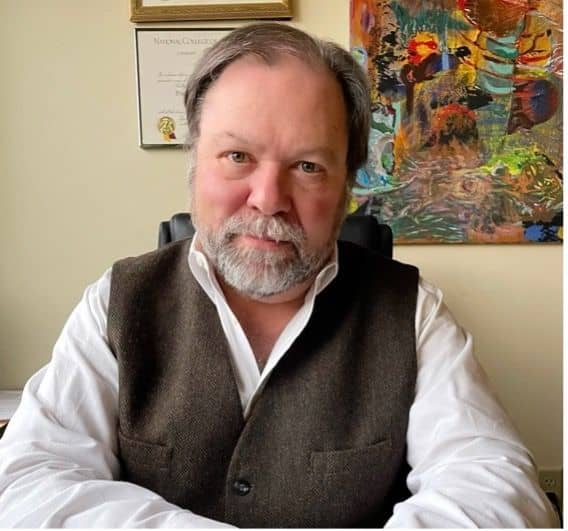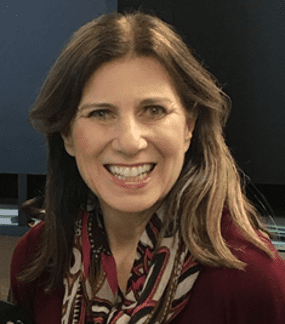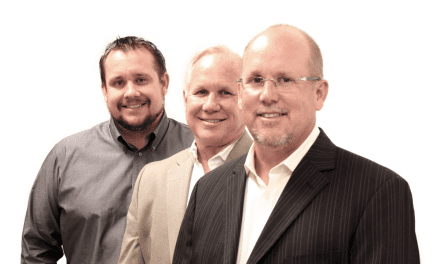Neuroscience company Cognivue, Inc announced that it has recruited eight professionals in the fields of neuroscience, geriatric medicine, psychiatry, and medicine for its new clinical advisory board. Cognivue is “an emerging leader in cognitive assessment technologies, data collection, and training programs within healthcare settings across North America.” The clinical advisory board members share their expertise in aiding Cognivue with strategy, research, publications, and new product development.
Cognivue President and CEO Tom O’Neill said, “The creation of this powerhouse clinical advisory board advances our mission to elevate the gold standard of cognitive health assessment, reduce the stigma of cognitive issues, and empower action with early detection. Working together, they will achieve even broader awareness, accessibility, and adoption of cognitive health assessment across the clinical spectrum. I have no doubt that their insights, intelligence, and influence will embolden Cognivue’s role in defining and supporting a cognitive health care continuum that serves a diverse and growing at-risk population.”
The advisory board members include:
James E. Galvin, MD, MPH
Professor of neurology and psychiatry and behavioral sciences, University of Miami Miller School of Medicine
Dr Galvin is Founding Director of the Comprehensive Center for Brain Health, Director and Principal Investigator of the Lewy Body Dementia Research Center of Excellence, and Chief of Cognitive Neurology for Palm Beach and Broward County leading brain health and neurodegenerative disease research and clinical programs. He has authored more than 300 scientific publications and three textbooks on healthy brain aging, cognitive health, Alzheimer’s disease, Lewy Body dementia, and related disorders. Dr Galvin has received over $100 million in research funding from the National Institutes of Health, Alzheimer’s Association, Michael J Fox Foundation, American Federation for Aging Research, Lewy Body Dementia Association, Association for Frontotemporal Degeneration, Missouri, New York, and Florida Departments of Health, and numerous private and family foundations.
Charles Y. Liu, PhD, MD
Director, USC Neurorestoration Center
Dr Liu is engaged in a broad spectrum of clinical and research activities combining engineering and medicine to develop novel approaches to restore function to the damaged nervous system. He is professor of neurological surgery, neurology, psychiatry, urology, biokinesiology, and biomedical engineering, where he also serves as director of the USC Neurorestoration Center. He plays a leadership role at Rancho Los Amgios National Rehabilitation Center, where he serves as chair of neurosurgery and orthopedics as well as chief of innovation and research. He has also had long appointments on the faculty of Caltech as visiting associate. Dr. Liu has played a major role in transformative research studies in regenerative medicine, neuroprosthetics, and neuromodulation/task-specific practice which have been published in journals such as Science, Nature-BME, Nature-Neuroscience, and The Lancet.
Joel Raskin, MD, FRCPC
President, Joel Raskin Consulting, Inc
Dr Joel Raskin brings more than 35 years of clinical, academic, and pharmaceutical research and medical affairs experience to his neuroscience consulting practice. As senior director at Eli Lilly, he led the medical affairs team for Alzheimer’s disease diagnostics and therapeutics. Most recently, Dr Raskin served as CMO of MindCure, a psychedelic research company. He serves as a scientific advisor to the Weston Family Foundation Brain Institute, is on the scientific review board of the Alzheimer’s Drug Discovery Foundation, and serves as a medical advisor to several drug and technology development companies. Dr Raskin has engaged with governments, regulators, payers, scientific organizations, physicians, educators, and advocacy groups.
Frank Sparadeo, PhD
Director of Clinical Operations, Center for Community Independence
A neuropsychologist for more than three decades, Dr Sparadeo focuses his practice on evaluating and treating people who have experienced disorders of the brain including concussion, traumatic brain injury, and dementia. Dr Sparadeo is a founding member of the Rhode Island Pain Society and a founding member and former president of the Brain Injury Association of Rhode Island. He assisted the Massachusetts Rehabilitation Commission in the development and implementation of a federally funded statewide training program for clinicians on the issue of traumatic brain injury and substance use disorder. Dr Sparadeo is considered an expert in the field of neuropsychology of addiction and traumatic brain injury and has authored numerous scientific articles and book chapters.
Ardeshir Hashmi, MD
Endowed chair of geriatric innovation, section chief of the Center for Geriatric Medicine, Cleveland Clinic
Dr Hashmi is a Fellow of the American College of Physicians, a graduate of the Clinical Process Improvement Leadership Program and Value Based Healthcare Delivery program via the Harvard Business School Institute of Strategy & Competitiveness. He is Co-Chair of the national American Geriatrics Society (AGS) Patient Priorities Care American Geriatrics Society Special Interest Group (SIG), and member of the AGS Health Systems Leadership SIG. Dr Hashmi is also a member of the Association of Chiefs and Leaders in General Internal Medicine and serves on the Cleveland Clinic National Consultation Service. He has also been selected for the Tideswell Emerging Leaders in Aging (ELIA) program in conjunction with the American Geriatric Society and the University of California, San Francisco (UCSF). Dr Hashmi’s niche area of interest is the intersection of affordable technology solutions and geriatric population health in the service of our most vulnerable populations. This includes experience with state-of-the-art artificial intelligence and machine learning-based cognitive screening technologies.
Sharon Cohen, MD FRCPC
Medical director, Toronto Memory Program
A behavioral neurologist, Dr Cohen serves as medical director of Toronto Memory Program, a community-based medical facility she established in 1996 for the purpose of enhancing diagnosis and treatment for individuals with Alzheimer’s disease and related disorders. Dr Cohen has more than 28 years of experience in clinical research and has been a site PI for more than 180 pharmacological trials. She represents Canada on international advisory boards and steering committees and is a consultant to a wide range of stakeholders including government organizations and patient advocacy groups. She is a frequent lecturer and contributes to media events including those on medical ethics. She is known for her advocacy of individuals with neurodegenerative diseases.
Jeffrey Kutcher, MD
Founder, Kutcher Clinic for Sports Neurology
Dr Kutcher is an expert and sports neurology pioneer, specializing in the evaluation and management of neurological diagnoses in athletes, including concussion, post-concussion syndrome, and the long-term neurological effects of repetitive head trauma. He has served as a Team USA physician at three winter Olympic games. Dr Kutcher founded the Sports Neurology Section of the American Academy of Neurology (AAN), serving as the section’s first chair, and established and co-directed the AAN’s annual Sports Concussion Conference. He founded and directed the University of Michigan NeuroSport Program where he established the first academic fellowship in Sports Neurology in 2012. In 2016, he founded the Kutcher Clinic for Sports Neurology, a destination program for clinical care, education, and research with locations in Utah and Michigan.
Diego Cahn-Hidalgo, MD
Dr Cahn-Hidalgo has served as an advisor for Cognivue since 2017, working on the development and implementation of the company’s cognitive assessment technology and training programs in primary care physician and family practice settings. He has practiced internal medicine for a quarter century and provides care for a large patient base in Rochester, New York. As a professor at the University of Rochester, Dr Cahn-Hidalgo is involved in resident education both in the hospital and in his current private practice.
Cognivue Chief Medical Officer and Senior Vice President Dr Jason Agran said, “I am excited to grow the Cognivue scientific and clinical portfolios with the guidance of our esteemed clinical advisory board. The expertise of our advisors, which covers the spectrum of neurology, neurosurgery, sports neurology, neuropsychiatry, psychiatry, geriatrics, and internal medicine, will be integral in refining our screening, confirmation, and diagnostic platforms. Leadership in their fields will also help Cognivue create a vetted and customizable referral ecosystem that supports our clinicians, ultimately allowing us to serve an even larger community of patients.”
Cognivue technologies are designed to give healthcare providers a useful tool for cognitive evaluation and diagnosis of various neurodegenerative and neuropsychological disorders. The Cognivue Thrive and Clarity devices provide a five- or ten-minute, self-administered computerized screening of cognitive function based on proprietary FDA-cleared technology that evaluates up to six domains and two performance parameters. The screening is “simple to implement in any clinical environment and requires minimal staff involvement,” according to the company.
Source: Cognivue
Images: Cognivue












